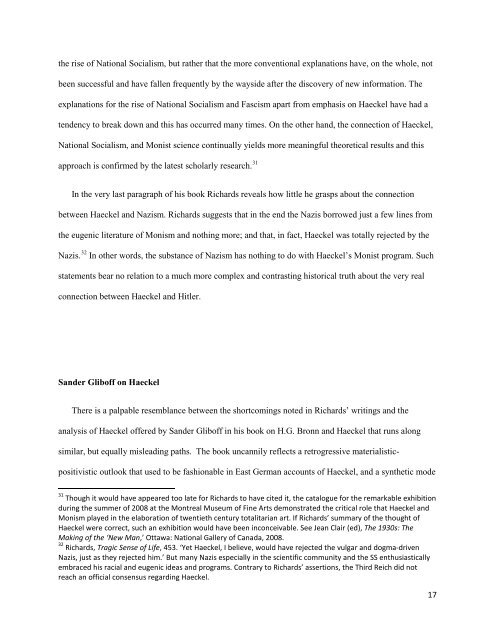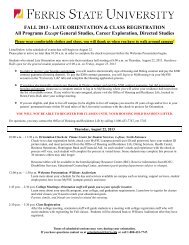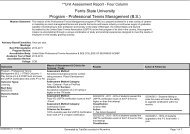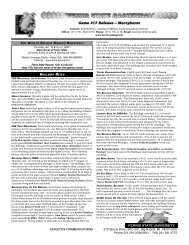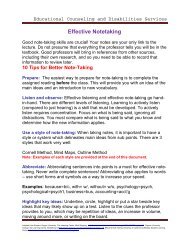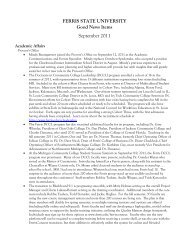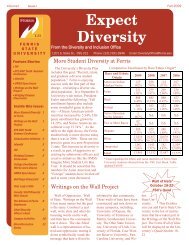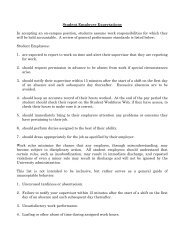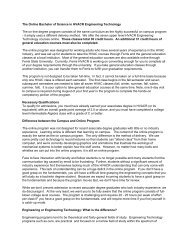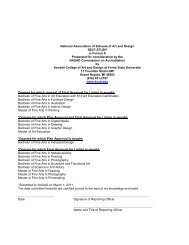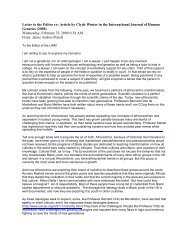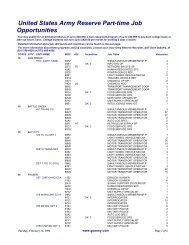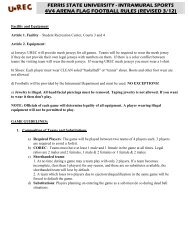Daniel Gasman - Ferris State University
Daniel Gasman - Ferris State University
Daniel Gasman - Ferris State University
Create successful ePaper yourself
Turn your PDF publications into a flip-book with our unique Google optimized e-Paper software.
the rise of National Socialism, but rather that the more conventional explanations have, on the whole, not<br />
been successful and have fallen frequently by the wayside after the discovery of new information. The<br />
explanations for the rise of National Socialism and Fascism apart from emphasis on Haeckel have had a<br />
tendency to break down and this has occurred many times. On the other hand, the connection of Haeckel,<br />
National Socialism, and Monist science continually yields more meaningful theoretical results and this<br />
approach is confirmed by the latest scholarly research. 31<br />
In the very last paragraph of his book Richards reveals how little he grasps about the connection<br />
between Haeckel and Nazism. Richards suggests that in the end the Nazis borrowed just a few lines from<br />
the eugenic literature of Monism and nothing more; and that, in fact, Haeckel was totally rejected by the<br />
32<br />
Nazis. In other words, the substance of Nazism has nothing to do with Haeckel’s Monist program. Such<br />
statements bear no relation to a much more complex and contrasting historical truth about the very real<br />
connection between Haeckel and Hitler.<br />
Sander Gliboff on Haeckel<br />
There is a palpable resemblance between the shortcomings noted in Richards’ writings and the<br />
analysis of Haeckel offered by Sander Gliboff in his book on H.G. Bronn and Haeckel that runs along<br />
similar, but equally misleading paths. The book uncannily reflects a retrogressive materialistic-<br />
positivistic outlook that used to be fashionable in East German accounts of Haeckel, and a synthetic mode<br />
31 Though it would have appeared too late for Richards to have cited it, the catalogue for the remarkable exhibition<br />
during the summer of 2008 at the Montreal Museum of Fine Arts demonstrated the critical role that Haeckel and<br />
Monism played in the elaboration of twentieth century totalitarian art. If Richards’ summary of the thought of<br />
Haeckel were correct, such an exhibition would have been inconceivable. See Jean Clair (ed), The 1930s: The<br />
Making of the ‘New Man,’ Ottawa: National Gallery of Canada, 2008.<br />
32 Richards, Tragic Sense of Life, 453. ‘Yet Haeckel, I believe, would have rejected the vulgar and dogma-driven<br />
Nazis, just as they rejected him.’ But many Nazis especially in the scientific community and the SS enthusiastically<br />
embraced his racial and eugenic ideas and programs. Contrary to Richards’ assertions, the Third Reich did not<br />
reach an official consensus regarding Haeckel.<br />
17


